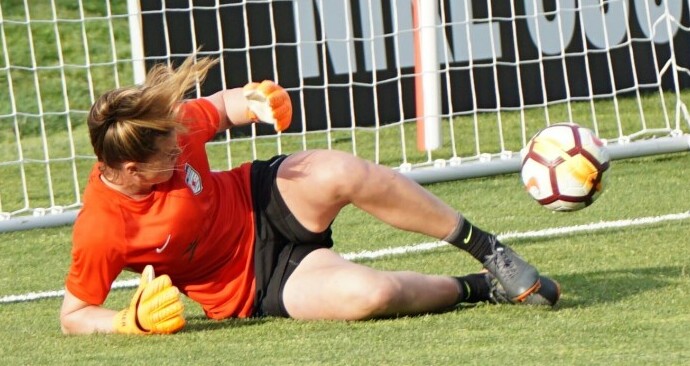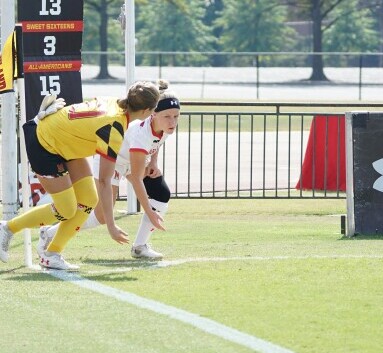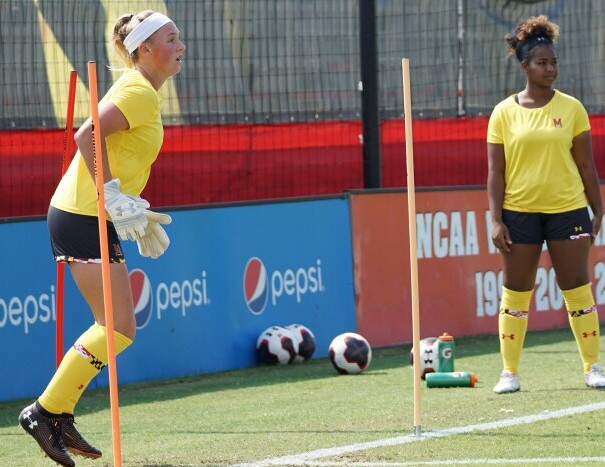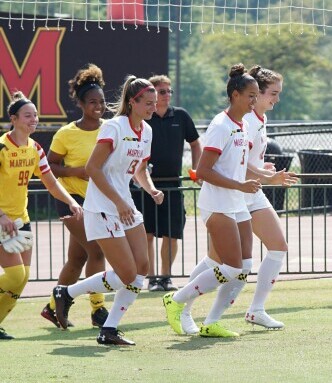
Every great soccer player starts with the fundamentals, and it’s no different for defenders. Nail these foundational skills, and you’re setting yourself up for success. Positioning is your first friend. Knowing where to stand and when to shift can stop an attack in its tracks. Think of it as your blueprint for defensive action.
Marking is where you make your presence felt. This skill is about staying close to your opponent, watching their moves like a hawk. Good marking is often the invisible hand that tips the balance in a defender’s favor. Closing down spaces quickly can prevent any chance the attacker might think they have.
Watch a few games, and you’ll see players like Virgil van Dijk and Kalidou Koulibaly owning the pitch with these basics. This isn’t magic. It’s mastery of simple skills applied consistently. You too can reach their level with focused practice and attention to detail.
So how can you get there? Drills are your best friends. Exercises that emulate match conditions ensure your skills remain sharp. From cone marking to one-on-one shadowing exercises, there’s a ton you can do to sharpen your defensive edge.
The goal with these basics isn’t just to learn them but to integrate them so they’re second nature. Remember, each training session is another step towards being a defensive maestro. With persistence, those core skills become the foundation on which every advanced move is built.
Beyond the Basics: Tactics and Strategies for Defensive Dominance

Once you’ve got the basic skills nailed down, it’s time to up your game with strategic thinking. Understanding defensive tactics is the secret sauce to taking control on the field. Think of zonal marking like you’re guarding your territory. Here, the idea is to cover space on the pitch instead of sticking to a single player. It requires sharp awareness and constant communication with your teammates.
Then there’s man-to-man coverage, a battle of wits and endurance. Picture it like a shadow game—you stick to your opponent, sniffing out their intentions and denying them the luxury of easy passes or shots. This is where you outthink and outmaneuver your opponent every step of the way.
Ever heard of the sweeper role? It’s the tactical ace in the hole for many teams. As a sweeper, you read the game, anticipate threats, and swoop in as the last line of defense. This isn’t just about reactions; it’s about prediction, almost like you’re seeing the future on the field.
Pressing is another killer strategy. Unleashing coordinated pressure on opponents can disrupt their rhythm, leading to mistakes and turnovers. It’s teamwork in action, requiring every defender to be on the same wavelength.
To really grasp these tactics, check out common formations like 4-4-2 or 3-5-2. They highlight how each player’s role fits into the larger defensive puzzle. Wisdom from legendary coaches can shed light on making these strategies your forte. Each tactic you master adds a layer to your defensive game, making you a nightmare for attackers.
Mental and Psychological Edge: Building a Defender’s Mindset

The mental game is huge for defenders. It separates the good from the great. Anticipation isn’t just knowing where the ball might go; it’s about reading the entire flow of the game. This skill allows you to be proactive, making you a thief of possession rather than a mere blocker.
Confidence is crucial, but pairing it with controlled aggression is where you strike the perfect balance. Defenders aren’t just stoic walls—they assert control, making attackers think twice before taking them on. Your mindset should scream ‘I own this space’,’ giving you a psychological edge over your opponents.
Dealing with pressure is an everyday thing on the field. Composure is what keeps you steady when the heat is on. It’s like having ice in your veins while everything else around you is on fire. Mental exercises, like visualization and focused breathing, can help you maintain this critical calmness during hard-fought matches.
Teamwork releases pressure off your shoulders, transforming defensive play into a harmonious art. Knowing when to call for backup and when to hold the line alone enhances your efficiency. Just like renowned defensive partnerships, use communication to spell out strategies and support each other consistently.
Revisit epic moments from iconic defenders like Paolo Maldini or Carles Puyol. These legends showcased not just physical skills but mental toughness in the face of adversity. They built reputations as players who brought their teams up a gear just by believing and backing themselves, and you can learn heaps by studying their journeys.
Adapting to Modern Soccer: Evolving Defensive Skills

Soccer’s always changing, and so should your approach as a defender. Today, being just a solid tackler isn’t enough—you gotta be a ball-player too. This new role means confidently handling the ball under pressure and even starting up attacks from the backline.
Versatility is your ace card. If you can switch between roles—from center-back to a full-back or even step into midfield when the game demands—it makes you indispensable. Being adaptable means when tactics change mid-game, you’re right there ready to roll with it.
Speed and agility are game-changers nowadays. Defenders need that burst of pace to match speedy forwards and agility to turn direction on a dime. It’s not just about stopping a run; it’s about matching it stride for stride.
Technology’s got your back in leveling up skills. Tools like video analysis can pinpoint where you can improve, showing you exactly what top defenders are doing right. This constant feedback loop is where you can refine your techniques more accurately.
With modern rules and tactics evolving, defenders also need to adjust. The offside trap, for example, demands perfect timing and cohesion with the team. Stay aware of these shifts in how the game is played, and let them inform your training and play.
In today’s game, being a defender means being a complete footballer. Continue honing those skills and embrace these modern challenges as a chance to showcase your talents from a new angle—there’s always more to learn and master.

Hi! Your article provides valuable insights into foundational and advanced defensive techniques.
Questions for Consideration:
– Positioning: How can defenders improve their spatial awareness to anticipate offensive plays more effectively?
– Marking: What are the best practices for balancing tight marking with the risk of committing fouls?
– Tackling: Which tackling techniques are most effective in different game situations, and how can players practice them safely?
– Interceptions: How can defenders develop the ability to read the game and intercept passes without overcommitting?
– Communication: What strategies can defenders use to enhance communication with teammates during high-pressure scenarios?
– Stamina and Fitness: How important is cardiovascular fitness for defenders, and what specific conditioning drills are recommended?
– Mental Toughness: In what ways can defenders build resilience to maintain focus after making mistakes during a match?
– Adaptability: How can defenders adjust their tactics when facing opponents with varying playing styles?
– Understanding Opponents: What methods can defenders use to study and predict the movements of specific attackers?
– Use of Technology: How can modern tools, like video analysis, aid defenders in improving their performance?
Exploring these questions can help aspiring defenders deepen their understanding and enhance their on-field performance.
I hope this helped…
thanks Fleeky , noted i will take them in considerations
Defensive skills in soccer go beyond just tackling and intercepting; they require a deep understanding of positioning, anticipation, and reading the game. One of the most underrated aspects is the ability to control space—knowing when to press aggressively and when to hold back to force an opponent into a less dangerous position.
Another key factor is communication. Many people focus on individual skills, but defensive success often depends on constant verbal and non-verbal cues between teammates. How much do young players prioritize this aspect of their game compared to their technical abilities? And in today’s fast-paced, high-pressing style of soccer, is the traditional sweeper role still relevant, or has it completely evolved into modern ball-playing center-backs?
Yes, lots of teams now they are using centre backs